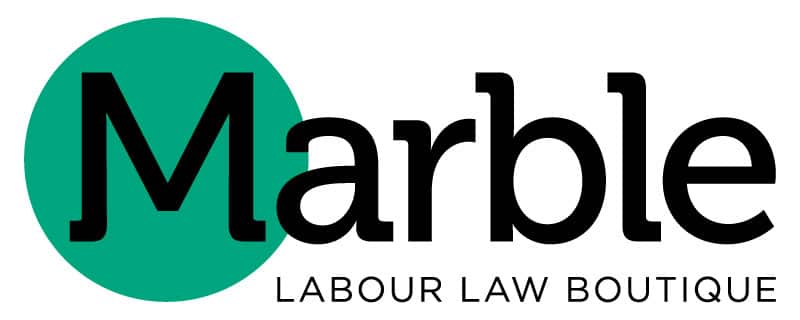22 Jan What will change in labour law land in 2024?
Posted at 13:48h in Geen categorie
2024 will see some employment law changes that are important for employers. A brief overview of the main changes and legislative proposals.
Whistleblowers Protection Act
- Since the end of 2023, medium-sized (>50 employees) employers must also comply with the Whistleblowers Protection Act (‘Wbk’). This act entails many changes, including the strict requirements for the internal reporting procedure, the possibility of direct external reporting, the widening of the prohibition of prejudice and the expansion of the circle of protected persons. The aim of the act is to improve the position of whistleblowers.
Employee CO2 emissions tracking at companies with >100 employees
- From 1 July 2024, companies with >100 employees will have to track their employees’ CO2 emissions for commuting and business trips. Employers will be required to submit data for the previous calendar year on commuting and all business trips for which the employee receives financial compensation or a means of transport has been made available (i.e.: the number of kilometres, the means of transport used and the fuel type) by 30 June each year. This scheme is an elaboration of the Climate Agreement; the government’s target is to reduce CO2 emissions from commuting by one megaton (25%) by 2030. A collective emissions cap applies until 2025, but if total CO2 emissions in 2025 exceed the set cap, mandatory standards will apply to individual employers. The aim is that by 2050, everything on the road will be completely tailpipe-free.
Capping and scaling back of 30% ruling
- As of 1 January 2024, the 30% ruling for expats has been further scaled down and capped at the so-called Balkenende norm. This means that the 30% ruling can only be applied to wages up to EUR 233,000 gross. If the salary is higher, no tax-free allowance can be calculated on the excess.

- The scheme has a maximum duration of five years (60 months) and the tax benefit decreases gradually. In the first 20 months, a tax exemption applies on 30% of taxable wages; the following 20 months 20%; and the following 20 months 10% of wages. For employees already covered by the 30% ruling in 2023, transitional law applies. The phasing-out rule does not apply to them.
Asylum seekers allowed to work longer
- The Council of State decided that asylum seekers are allowed to work all year round once their asylum application has been pending for at least six months. Until recently, asylum seekers were only allowed to work for 24 weeks a year; this 24-week requirement prevented asylum seekers’ effective access to the labour market.
Bills ((not yet) in force)
- The proposal for the Work Where You Want Act was not passed by the Senate. The law was supposed to regulate that the employee could request an adjustment of the workplace. This request should be treated in the same way as a request for adjustment of working time or working hours.
- Bill Compulsory confidential counsellor for undesirable behaviour in the workplace
This proposal amends the Working Conditions Act (Arbowet) and aims to oblige employers (with ≥10 employees) to appoint a confidential advisor. The Lower House already adopted the proposal in May 2023. It is now still before the Senate. - Proposed Equal Opportunities in Recruitment and Selection Act
This proposal aims to prevent employment discrimination in recruitment and selection through three obligations for employers and intermediaries. - Bill Clarifying assessment of employment relationships and legal presumption
This proposal aims to clarify the demarcation between self-employed workers and employees and offers support to workers with limited bargaining power in claiming their employment contracts. - Proposed Flexible Workforce Security Improvement Act
A new bill, part of a wider package announced in April 2023, aims to provide more security (on, for example, income and schedule) to flexible workers.
Adjusted amounts from 1 January 2024: transition payment, minimum wage, state pension, etc.
- Minimum wage:
- Instead of a minimum monthly wage, a minimum hourly wage will be introduced. The minimum wage will increase by 3.75% to EUR 13.27 (excluding holiday allowance) per hour for workers aged 21 and above.
- Minimum wage (from 21 years old): for a 36-hour working week EUR 1,995 per month; for a 38-hour working week EUR 2,105.83 per month; for a 40-hour working week EUR 2,216.67 per month.
- Maximum daily wage (for the purposes of ZW, WW, WIA, WAZO, etc.): EUR 274.44 gross per day; maximum monthly wage EUR 5,969 gross.
- From 1 July 2024, the minimum wage will be adjusted again. There will then probably be an additional increase of 1.2% on top of the regular increase.
- Maximum transition payment: EUR 94,000 gross (unless an annual salary is higher).
- State pension age: 67 years.
- The untaxed home working allowance will be increased from a maximum of EUR 2 per day to a maximum of EUR 2.35 per day.
- The travel allowance that employers can pay employees untaxed will be increased to EUR 0.23 per kilometre.
- The exemption allowing employers to provide employees with untaxed public transport season tickets will be widened.
- The ‘free space’ under the work-related costs scheme (WKR) is shrinking; the free space over the first EUR 400,000 of the fiscal wage drops from 3% to 92%. Above EUR 400,000, the free margin remains 1.18%.
- The STAP budget will be dropped; EUR 73.5 million of the remaining budget will go to the budget of the Incentive Scheme for Learning and Development in SMEs.
- Minimum wage:
Any questions? Please feel free to contact Marble: info@mllb.nl


